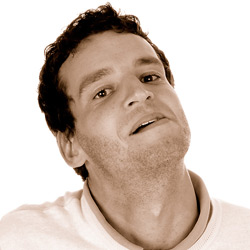Lockjaw Causes, Symptoms, Diagnosis and Treatment

What is Lockjaw?
Lockjaw is basically a disorder that prevents the mouth from opening properly, fully, or to otherwise function improperly. If there is pain or tension in your mouth that prevents you from fully opening your jaw it is likely that you have lockjaw. This disorder itself is relatively harmless, but it is an indicator of some issues that may be very important.
Causes of Lockjaw
Lockjaw, thought to have a ‘multifactorial’ cause, meaning that there are usually a number of factors contributing to the cause. These factors can be grouped into two types:
- Problems linked to the muscles working the joint.
- Problems inside the joint itself.
The muscle problems are the most common type, particularly for younger people.
Problems with the muscles may be caused by:
- The tension of the jaw muscles. This can occur if you clench your jaw a lot during sleep, which is quite common. People also clench their jaw during the day if they are feeling tense or anxious.
- Overuse of the jaw muscles, such as habitually chewing gum, or biting nails.
- Rarely, other conditions make the jaw muscles overactive. For example, there are some rare kinds of movement disorders (called orofacial dystonias) which cause excessive jaw clenching.
- Increased sensitivity to pain. We don’t know why this happens but it may be linked to stress, or to some other process which affects pain sensitivity. Some doctors call this type of problem a pain syndrome because the exact cause of the pain is not known.
Problems in the joint may be caused by:
- Wear and tear to the inside of the joint – for example, wear and tear to the cartilage. Sometimes this is due to a Type of Arthritis called Osteoarthritis. This problem tends to affect older rather than younger people.
- Certain other types of arthritis. Arthritis means inflammation in a joint. There are different kinds of arthritis. For example, Rheumatoid Arthritis and gout are both types of arthritis which may affect various joints in the body and they can sometimes affect the jaw joint.
- Injury to the TMJ or to its cartilage disc can cause TMJ pain.
Symptoms of Lockjaw
The symptoms of Lockjaw are as follow:
- Radiating pain in the face, jaw, or neck,
- Jaw muscle stiffness,
- Limited movement or locking of the jaw,
- Painful clicking, popping or grating in the jaw joint when opening or closing the mouth,
- A change in the way the upper and lower teeth fit together.
Diagnosis of Lockjaw
Diagnosis of Lockjaw is as follows:
- Listen to and feel jaw when open and close mouth
- Observe the range of motion in jaw
- Press on areas around jaw to identify sites of pain or discomfort
- Dental X-rays
- A CT scan can provide detailed images of the bones involved in the joint
- MRIs can reveal problems with the joint’s disk.
- TMJ arthroscopy is sometimes used in the Diagnosis of a TMJ Disorder
Treatment of Lockjaw
Treatment procedures of Lockjaw is as follows:
There are steps you can take that may be helpful in easing symptoms, such as:
- Eating soft Foods,
- Applying ice packs,
- Avoiding extreme jaw movements (such as wide yawning, loud singing, and gum chewing),
- Learning techniques for relaxing and reducing stress,
Pain Medications
- Over-the-counter pain medicines
- Nonsteroidal anti-inflammatory drugs (NSAIDs)
- Ibuprofen
- Anti-inflammatory medications
- Muscle relaxants
- Anti-depressants
Stabilization Splints
- Botox
- Surgery
- Implants
By : Natural Health News




